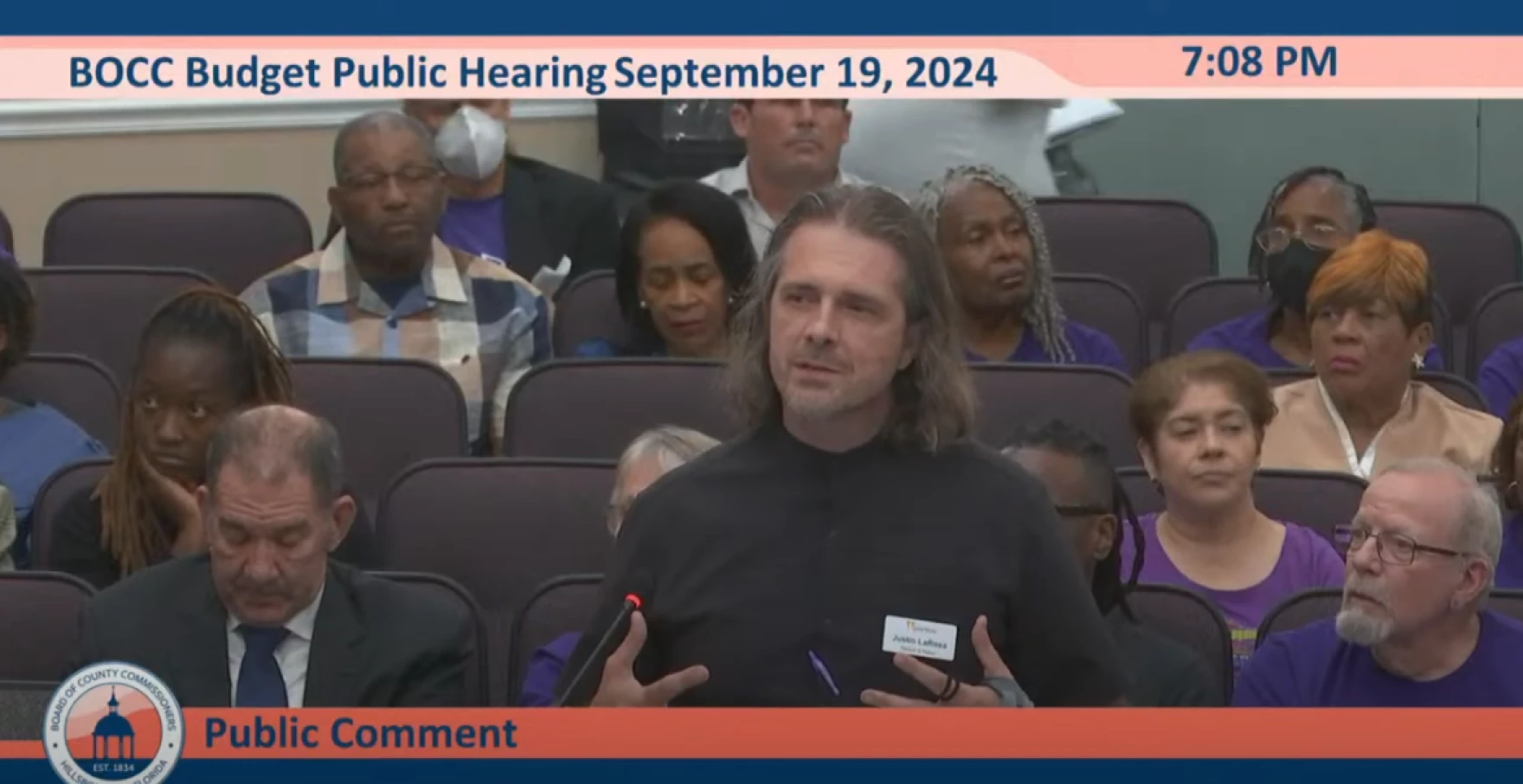By Mahika Kukday, WUSF
This year, affordable housing efforts will get only $2 million, with the remainder being reallocated towards reduced property taxes, sidewalk repairs, and other investments.
Everyone’s worried about rising prices — groceries, homes, and more. But Hillsborough County residents don’t agree on how taxpayer money should be used to solve at least one problem.
The Hillsborough County Commission voted 4-3 Thursday to divert $8 million — or 80% of an affordable housing fund — to other projects.
While the Hillsborough Organization for Progress and Equality (HOPE) doesn’t control or receive the funds, the coalition of churches led the effort to create the subsidy in 2019.
That was when an ordinance was passed that required the county to include at least $10 million in affordable housing funds in every budget.
This year, affordable housing efforts will get only $2 million of the county funds, with the remainder being reallocated toward reduced property taxes, sidewalk repairs and other investments.
During the commission’s budget meeting’s public comment period, almost 50 people shared their thoughts.
Seeking solutions through unity
Justin LaRosa is a minister, licensed social worker and HOPE member. He said that the city has worked on affordable housing in a bipartisan manner for years, so he didn’t understand the sudden need to stop doing so.
“What’s that about? Got pressure from the party? Got pressure from the constituency?”
LaRosa stressed the need to work together and find a solution, because “the reality is that people with very low income have nowhere to live.”
Last year, the commission also voted 4-3 to take $8 million from the affordable housing program and put it toward roadways and sidewalks.
For Hillsborough homeowner Stacy Ransom, the idea of choosing between affordable housing and infrastructure is seriously flawed.
“It is not an either/or situation,” Ransom said. “And I don’t believe that the people that elected the people voting against it want you to put people out on the street so that they have a sidewalk that they can’t even sleep on for fear of being arrested.”
Tina Forcier, CEO of Habitat for Humanity of Hillsborough, argues that subsidizing affordable housing gives a proven return on the initial investment because people pay back the money in the form of property taxes.
Additionally, she said, people in such homes require less government help in the future because they finally have a roof over their heads.
In an email statement to WUSF, HOPE officials pointed out that the funds have helped organizations and affordable housing developers build and rehab nearly 1,100 new units to date.
“Building affordable housing is not economically feasible without a local investment that can help organizations and affordable housing developers close the finance gap. It takes cobbling together many sources of funding,” the statement read. “Further, a local investment allows applications to be competitive to actually access state and federal funds. It takes a competitive local investment.”
‘Nothing in return’
But not everyone is convinced.
Those who agree with the commission’s decision cited various reasons.
Apollo Beach resident Kendall Perez said she supports the effort to make housing more accessible for people of all incomes. However, she is against the subsidy because taxpayers like her have no other source of funding for improvements in their own communities.
“All we do is pay. We pay all the time, and we get nothing in return,” Perez said, while displaying a picture of a damaged road near her home.
She wanted accountability for the $70,000 in tax dollars she’s paid over the past 12 years.
College student Benjamin Jones fears that subsidizing large nonprofits will drive up other housing costs.
“To make up for this, property taxes will have to increase, making it harder for young people like me to own a home, and I will not allow my generation to be hindered by excessive taxes,” Jones said.
Some residents, such as Carmen Edmonds and 24-year-old college student Autumn Williams, believe that the responsibility of funding affordable housing should fall on churches, rather than on the backs of taxpayers.
“God has infinite resources to take care of his people, and he does not need a government bailout,” Williams said.
The commission decided to drop the millage rate by 0.025, eliminating almost $3.8 million.
More than $2.2 million will go to sidewalks and road repairs.
The rest will be split between Tampa General Hospital, Gracepoint Women’s Psychiatric Hospital, Tampa Metropolitan Area YMCA, and Veterans Memorial Park.
View the original story here.






